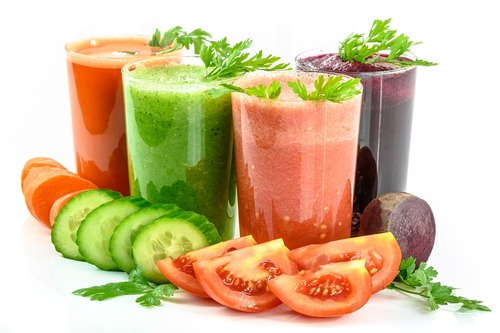
Jump to
Short answer
Antioxidants come in many forms such as various foods, herbs and spices and various fruits and veggies. Many supplements contain ingredients that are high in antioxidant power. Antioxidants help our body to fight off free radicals and oxidative stress that can lead to significant damage in our body.
Long answer
We live in a very toxic society. When you start your day within the first hour you are bombarded with over 100 chemicals and toxins that come from the air, our food and beverages, our home and work place-the list is infinitely long.
When toxins enter our body they can enter via our skin, our digestive tract and our pulmonary tract. These impurities have an adverse impact on the body.
Free radicals are unstable atoms, ions or molecules formed in the body during metabolism (a biological process) or exposure to environmental toxins such as pollutants that are extremely common in air, food and water. Free radicals are missing an electron and they want to steal one back-and will steal them back from fats, proteins, cell membranes and DNA. This alters the configuration of these substances which can lead to chronic inflammation, degenerative disease, aging and even malignancy. When free radicals increase in our body then oxidative stress can occur. Not all free radical activity is bad. For example, in lower amounts free radicals help our bodies to generate energy and fight infections, but when we have too many free radicals (and not enough antioxidants) they can attack healthy tissue and cells causing them to deteriorate and age prematurely. This is oxidative stress. Free radical damage equals oxidative damage.
Free radical production and oxidation can also happen when we are under physical and emotional stress. For athletes that are regularly pushing their bodies to the limit-antioxidants are recommended on a regular daily basis.
The best way to understand oxidation is to think of when iron and oxygen come in contact with each other. The iron loses an electron to the oxygen and the “oxidation” is the rusting of the iron. Oxidation is like the rusting of the internal body and that is why antioxidants are so helpful to combat the effects of these free radicals. Free radicals in high amounts are the bad guys and antioxidants are the good guys.
When you cut an apple and leave it out in the open it will turn brown-similar to pears, peaches and bananas. The oxygen in the air is reactive to some enzymes in the fruit and starts stealing the electrons which causes oxidation and hence the “browning” or aging of the fruit. Oxygen is a thief and although we need this type of reaction to occur naturally in our body we need to limit the potential for oxidative stress.
Antioxidants are molecules because they like to donate electrons and balance out those free radicals. We find antioxidants in colorful fruits and vegetables that contain high amounts of Vitamin C, A and E.
Antioxidants have been associated with ORAC values. ORAC stands for Oxygen Radical Absorbance Capacity. Basically the higher the ORAC value the higher the antioxidant power. You will often find nutritional supplements that will have an ORAC value associated with them.
Heavily pigmented fruits contain anthocyanins (which are the red, blue or violet pigments) that are associated with high antioxidant power. This includes blueberries, raspberries, blackberries, prunes, raisins, plums, strawberries, acai berries, goji berries, elderberries, and cherries. Obviously, Vitamin C found in citrus fruits make them great antioxidant sources. Deep green leafy vegetables are high in antioxidants. This includes kale, spinach, Brussels sprouts and broccoli. There are great herbs and spices that can deliver a powerful antioxidant punch. This includes oregano, cumin, thyme, cocoa, cilantro, basil, turmeric, curry, paprika, ginger and cloves. What may surprise you is that coffee is one of the most potent antioxidant sources on the planet. And let’s not forget the antioxidant and tasty benefits of dark chocolate.
There are tremendous benefits to eating foods high in oxidant power. If your diet is not sufficient and you eat a lot of fast and processed foods than a quality anti-oxidant supplement would be a good option to examine.
Possible long-term side effects
- high doses of antioxidant supplements that contain vitamin a and e can be toxic and linked to nausea, vomiting, skin changes, liver disease, irritability and confusion. (very rare)

Benefits
- slow the signs and effects of aging
- healthier, more youthful, glowing skin
- reduced cancer risk
- detoxification support
- decrease inflammation
- decrease degenerative diseases
- protection against heart disease and stroke
- less risk for cognitive problems, such as dementia
- reduced risk for vision loss or disorders like macular degeneration and cataracts
- antioxidants can be added to food or household products to prevent oxidation and spoilage
 Approved by
Approved by 














